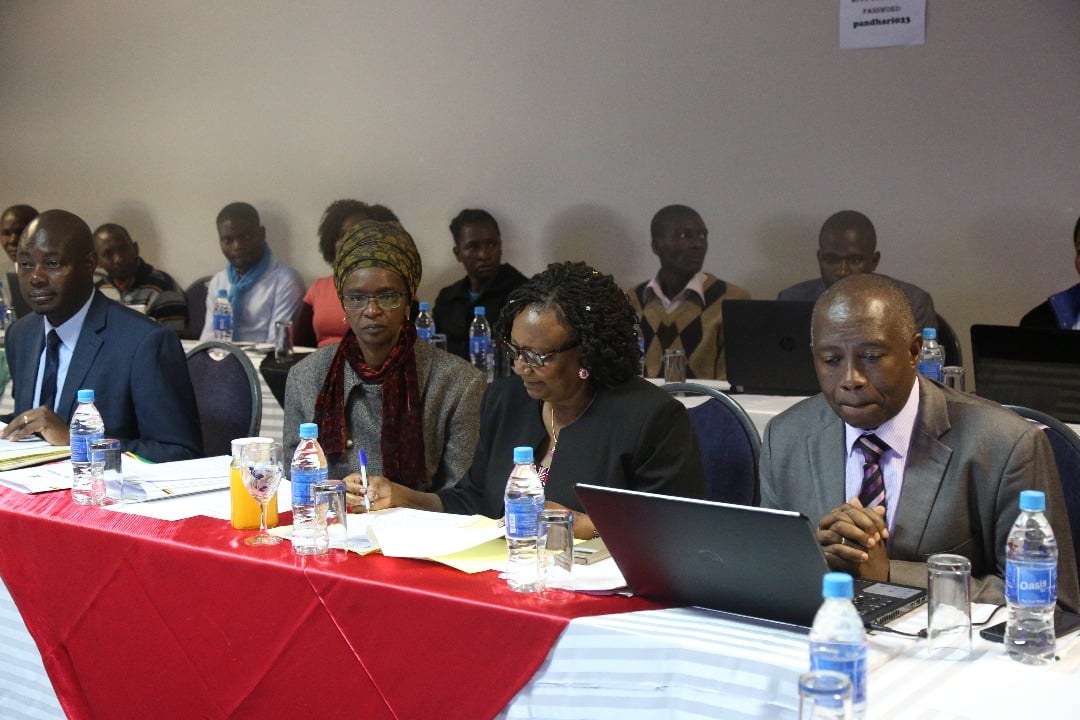By Byron Mutingwende
The review of the Strategic Planning Document for the Ministry of Tourism will make the sector one of the world’s fastest growing industries so as to contribute to the development of the country’s economy.
Priscah Mupfumira, the Minister of Tourism and Hospitality industry in her opening remarks at the strategic planning workshop at Pandhari Lodge in Harare said in a country like Zimbabwe rich in natural resources and capable of attracting tourists, the tourism industry should become an indispensable source of revenue as services are rendered to regional and international visitors.
“As a Ministry, therefore, we need to have a Strategic Plan in place that will give direction and guide us in achieving the above in a coordinated manner. I understand we are behind schedule in terms of submission of our Strategic Plan, Ministry Integrated Performance Agreement (MIPA) and Departmental Integrated Performance Agreements (DIPA’s) to the Office of the President and Cabinet. Therefore, as we develop this Strategic Plan let’s bear in mind that we should come out of this workshop with clear and comprehensive final documents ready for submission by Monday next week,” Mupfumira said.
The strategic plan presents key result areas, goals and objectives to increase economic activity, sustain the positive net benefits of tourism, grow visitors spending and be an effective organisation. It establishes the goals that we, as a Ministry, intend to accomplish by working and collaborating with key partners and stakeholders.
The minister said the Strategic Plan should spell the direction or path that the sector would take to fulfil its Mandate, Vision, Mission and Core Values for the coming 5 years.
In order to achieve that, there is need to align the old draft Strategic Plan Document with the National Tourism Sector Strategy (NTSS) document, the recently launched National Tourism Master Plan, Community Based Tourism Handbook and Manual, so that they are integrated and speak to each other.
In doing so, there is need to answer and map a way forward to the issues raised by stakeholders during consultative workshops, which culminated in the development of the NTSS document.
The Strategic Plan should outline the strategic direction and strategic moves that will be implemented to fulfill the needs and aspirations of clients and stakeholders.
Mupfumira said the macro and micro environments should also be assessed strategically to determine the strategic factors that will influence the Ministry’s performance.
“This plan, therefore, seeks to rally and guide the independent decisions and actions of the Ministry, its departments and employees towards the attainment of the vision, which is to “make Zimbabwe a Middle income Economyby 2030”. In pursuit of the vision, the Ministry has to achieve results in the following key areas namely Domestic Tourism Development; Regional and International Co-operation; Product Development and Diversification; and Markets Development and Diversification.
“In developing this Plan, we should be guided and be answerable to the Rapid Results Initiative, Zim Asset Blue print, Programme Based Budgeting, Ease of Doing Business, Sustainable Development Goals which the Government of Zimbabwe has adopted to ensure effective and efficient delivery of service and also take cognisance of the fact that the new dispensation has declared and is running with the theme, Zimbabwe is open for business,” Mupfumira said.
The ultimate aim in developing the Strategic Plan is to translate the Ministry’s vision into a more operational plan by aligning priorities and programmes to the constitution and current Government policies. That is in line with regional and international obligations where Zimbabwe has membership, such as SADC, COMESA, AU, UN and UNWTO.
Emphasis was put on the need to identify areas to focus on, understanding that in order for the tourism sector to be successful, it was important to be innovative and proactive.
Stakeholders were urged to analyse how public resources are used and advise on how resource allocation can be redirected towards the National Development Plan priorities and to help the Government weigh the trade-offs and make the difficult but necessary choices. They were encouraged to come up with ways to mobilise more resources from public and private sources to fund the investments needed to drive growth, including increasing expenditure on research and development.
“We must look at how successful economies attract and keep investors. As we develop or review our Strategic Plan, let’s take cognisance of factors that will drive investment opportunities for local businesses to expand as well as equal opportunities for those with limited capacity to have a fair and equal opportunities for investment, sustainability which is crucial for today’s travellers, collection of timely and accurate data for the development of better informed policies and access to trained & reliable human resources. This is an important workshop as it will determine what we will do for the next 5 years in fulfilment of our mandate and provides us with a framework that enhances the efficient and effective use of resources that helps us as a Ministry to position ourselves strategically to changes taking place in our internal and external environments,” Mupfumira added.
